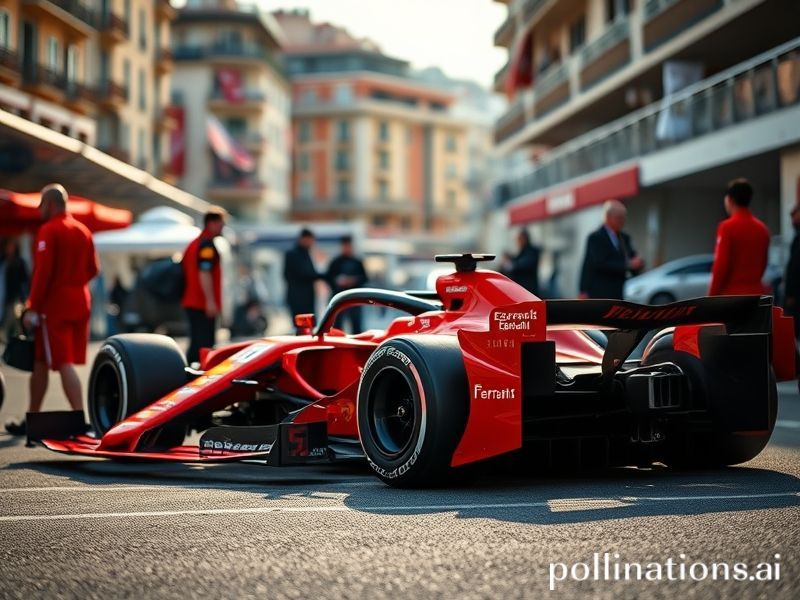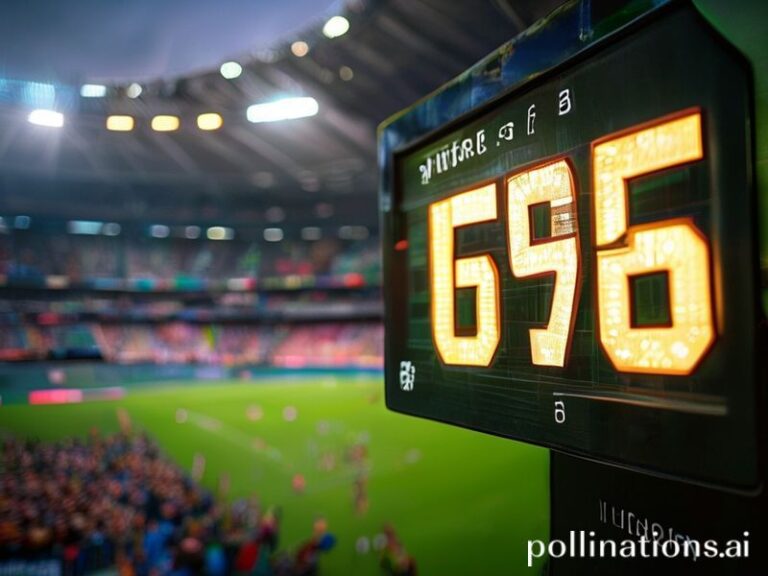Carbon Fiber Diplomacy: How Today’s F1 Race Became a Geopolitical Chessboard at 320 km/h
The circus has moved on from Miami’s pastel parking-lot chic to the altogether more earnest asphalt of Barcelona, which means F1 “today” is already tomorrow somewhere else. Still, if you squint past the carbon-fiber confetti and the obligatory shots of drivers pretending to read the energy-drink label on their steering wheels, you’ll see the same geopolitical pantomime playing out at 320 km/h.
For the uninitiated, today’s talking point is Red Bull’s front-wing flex—again. The FIA, motorsport’s answer to the United Nations if the UN met in a Marriott ballroom and issued communiqués in millimeters, has promised “heightened scrutiny.” Translation: someone swapped the ruler from metric to imperial and now every aerodynamicist is sweating like a crypto exchange founder. Christian Horner, ever the diplomat, insists his car simply “breathes” in sympathy with the track. Somewhere in Maranello, an Italian engineer is actually breathing into a paper bag.
But zoom out and the flexi-wing flap is a proxy war for something larger: the global scramble for soft-power optics. The grid is now a United Colors of Benetton ad sponsored by petrostates, venture capital, and at least one nation currently under ICC investigation. Qatar, Saudi Arabia, and Abu Dhabi don’t merely host races; they host entire paddocks. If you want to launder reputations at 15,000 rpm, nothing beats a phalanx of influencers posing next to a champagne-sprinkling Dutchman who still lives with his mum.
Meanwhile, the European heartland clings to heritage like a granny to floral wallpaper. The Spanish Grand Prix is billed as a “return to tradition,” which in F1 terms means ticket prices high enough to make a Swiss banker blink and enough paella to drown a medium-sized village. The crowd, equal parts sunburned Brit and mysteriously funded TikTok royalty, waves flags purchased on-site for €45 apiece—recyclable, naturally, because nothing says “green revolution” like flying 300 tonnes of freight across oceans to lecture the world about sustainability.
Speaking of green, Formula 1’s pledge to be net-zero by 2030 is progressing at roughly the same pace as peace in the Middle East. Today’s innovation highlight is a 100% sustainable fuel trial slated for 2026, provided the requisite number of trees have finished growing and no one notices the 747 that carried the test barrels. The sport’s marketing department calls this “harmonizing speed with stewardship”; cynics call it a guilt-offset program for billionaires who’ve run out of islands to buy.
Yet the true barometer of global mood isn’t the fuel; it’s the driver market. Lewis Hamilton’s rumored flirtation with Ferrari is treated like a defection during the Cold War, complete with anonymous briefings and strategically leaked dinner receipts. Should the seven-time champion swap silver for scarlet, the seismic shift will be measured not merely in merchandise but in geopolitical schadenfreude: Britain’s knight errant kneeling before the prancing horse is the sporting equivalent of finding out your ex has started dating your accountant.
And then there’s the China question. Zhou Guanyu’s very presence on the grid is a masterclass in realpolitik—Alfa Romeo’s pace is so lethargic that the car doubles as rolling propaganda for the virtues of patience. Still, 1.4 billion potential viewers buy a lot of patience, and Liberty Media knows it. Expect a Shanghai night race by 2025, complete with AR fireworks and a metaverse trophy ceremony, because nothing says “sport” like a podium nobody can physically attend.
By the time the lights go out in Barcelona, the world will have spun a few more degrees toward chaos—trade wars, climate deadlines, AI-generated popes—but the cars will still launch off the line like caffeinated ballistic missiles. In that moment, 20 men in Nomex onesies will chase each other around a ribbon of tarmac while the rest of us pretend the outcome matters. And perhaps, in a universe that insists on taking itself seriously, that shared delusion is the most honest thing we’ve got.







